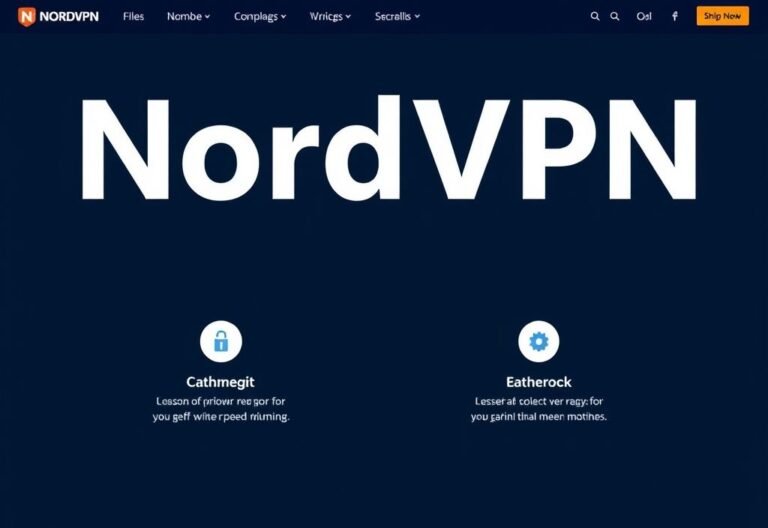
Why Password Managers Are Your Best Defense Against Cyber Threats
In today’s digital world, passwords are the keys to our personal and professional lives — protecting everything from email accounts to banking portals and work tools.
But keeping track of dozens of unique passwords is nearly impossible. That’s where password managers come in — not just as convenience tools, but as essential layers of security that protect your online identity.
Let’s explore how password managers work, why they matter, and how they help you stay secure in an increasingly risky digital landscape.
What Is a Password Manager?
A password manager is like a secure digital vault for all your login credentials. You only need to remember one strong master password , and the manager does the rest.
It stores, fills, and even generates complex passwords for every site and service you use — helping you avoid weak, reused, or forgotten logins.
They come in different forms:
- Mobile and desktop apps
- Browser extensions
- Hybrid solutions that sync across devices
And they all share one goal: making online security easier and more effective for users.
How Password Managers Keep You Safe
🔒 1. Generate Strong, Unique Passwords
Most people use weak or repeated passwords because they’re easy to remember. But that makes them easy to crack.
Password managers generate long, randomized passwords that are nearly impossible for hackers to guess — and ensure each account has its own unique key.
🔐 2. Encrypt Your Data
Your passwords are stored in an encrypted format. Even if someone gains access to the password manager’s database, they can’t read your data without the encryption key — which only you control.
This means your sensitive information stays protected, even if the company experiences a breach.
🛡️ 3. Protect Against Phishing
Many phishing attacks try to trick users into logging into fake websites. A good password manager won’t auto-fill your credentials on suspicious sites — adding a layer of protection against scams.
🔄 4. Auto-Fill Logins Across Sites
No more typing errors or copying/pasting passwords. Many managers automatically fill in your username and password when you visit a saved site — saving time and reducing risk.
📝 5. Store Sensitive Information Beyond Just Passwords
Some managers also securely store:
- Credit card details
- Secure notes
- Identity documents
- Emergency contact info
All with the same level of encryption and privacy.
🧑🤝🧑 6. Enable Secure Password Sharing
Need to share a login with a teammate or family member? Many password managers offer secure sharing features — so you can grant access without revealing the actual password.
Are Password Managers Safe to Use?
Yes — especially when used correctly.
Reputable password managers use AES-256 encryption , the gold standard used by banks and government agencies. Even if a hacker accesses the server, your data remains unreadable without the decryption key.
However, it’s important to choose wisely:
- Go with trusted brands that have a proven security record
- Enable two-factor authentication (2FA) for extra protection
- Avoid using weak master passwords or sharing them publicly
While no system is completely immune to attack, a good password manager is far safer than relying on memory or spreadsheets.
Free vs. Paid Password Managers
There are both free and paid options available.
Free versions are great for basic use:
- Store passwords locally or with limited sync
- Generate strong passwords
- Offer basic auto-fill support
Paid versions add powerful features:
- Full cross-device syncing
- Cloud backup and recovery
- Dark web monitoring
- Secure file storage
- Team-sharing capabilities
- Priority customer support
For most users, a free version works well — but businesses and power users will benefit from upgrading.
Tips for Using a Password Manager Safely
✅ Create a strong, memorable master password
✅ Turn on two-factor authentication
✅ Avoid saving your master password on public computers
✅ Regularly update your manager app to patch vulnerabilities
✅ Never share your master password
✅ Always log out when using shared devices
These habits ensure your digital vault stays locked tight.
What Happens If You Forget Your Master Password?
Most password managers don’t store your master password — not even for recovery. That’s part of what keeps them secure.
So if you forget your password, you may lose access to your vault permanently.
To prevent this:
- Set up a recovery key during setup
- Answer security questions carefully
- Store recovery methods securely — not in the same place as your manager
Always treat your master password like a real-life key — keep it safe, and don’t leave it lying around.
Can Password Managers Be Hacked?
Like any software, password managers aren’t 100% immune to cyberattacks. However, breaches are rare — and often contain little usable data thanks to encryption.
The bigger risks usually come from user behavior:
- Reusing the same master password
- Falling for phishing attacks
- Leaving devices unlocked and unattended
By practicing good security habits, you dramatically reduce your risk.
What About Built-in Phone Managers?
Both Apple Keychain and Google Password Manager offer built-in password management — and they’re convenient.
However, they lack many advanced features:
- Limited cross-platform compatibility
- Fewer customization options
- Minimal support for secure notes or emergency access
They’re fine for casual use, but not ideal for those who need full control over their digital identities.
How They Help During Data Breaches
Modern password managers help you react fast when a website you use gets hacked.
They can:
- Alert you if a site you’ve logged into was breached
- Show if your password appears in known leaks
- Make it easy to change affected passwords quickly
This proactive approach helps you respond before damage occurs.
Do They Work Offline?
Most password managers let you view saved passwords without an internet connection — but syncing and cloud-based features require being online.
This means you can still access your logins during travel or network issues — just be aware that updates won’t sync until you reconnect.
How Often Should You Change Passwords?
Security experts no longer recommend changing passwords frequently unless there’s a reason — like a breach or compromised account.
Instead, focus on:
- Using strong, unique passwords
- Updating credentials when needed
- Letting your password manager alert you when changes are necessary
This saves time and reduces unnecessary friction.
What’s Next for Password Managers?
As threats evolve, so do password managers. Here are some exciting trends shaping the future of password security:
- Passwordless login options (like biometrics or hardware keys)
- Deeper integration with zero-trust security models
- More use of facial recognition and fingerprint scanning
- Improved emergency access for trusted contacts
- Better team collaboration features for businesses
The future of digital security is smart, adaptive, and centered around convenience without compromise.
Take Control of Your Digital Security
Password managers are more than just a convenience tool — they’re a critical part of modern cybersecurity.
Using one helps you:
- Stay ahead of cybercriminals
- Reduce human error
- Improve productivity while staying secure
- Protect sensitive data across all your accounts
Whether you’re managing a business or securing your personal accounts, a password manager is a simple step that delivers big returns.





